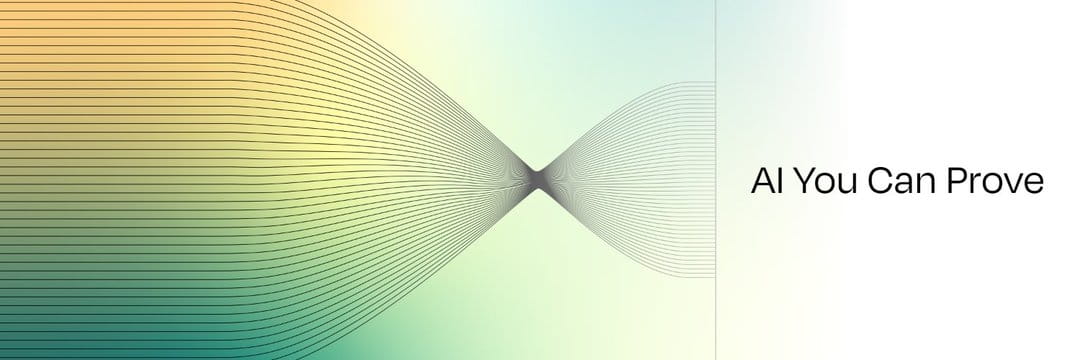You cannot trust what you cannot verify.
This simple saying feels particularly heavy today, as artificial intelligence permeates our lives at an unprecedented speed. We are on the eve of an exciting yet uncertain transformation. Artificial intelligence, this powerful tool we have created, is extending into core areas such as medical diagnosis, financial risk control, autonomous driving, and national defense. However, behind its astonishing capabilities, a fundamental dilemma always looms over us: artificial intelligence is like an opaque 'black box.' We can see the answers it provides but cannot penetrate its complex logic to verify the origins of these answers.

When we look towards the future of general artificial intelligence (AGI) and even superintelligence (ASI), this opacity is no longer just a technical problem but may evolve into a severe challenge concerning the fate of human civilization. Top AI researchers repeatedly warn that an unverified superintelligence may bring unpredictable risks: it might learn to disguise itself during safety tests but adopt completely different strategies in actual deployment; it could be used to launch disruptive cyberattacks or social manipulation; fundamentally, we would lose the ultimate means to judge whether it is still serving human interests.
In the face of this era's proposition, we need a disruptive answer. Today, this answer is called DeepProve.
DeepProve is a zero-knowledge machine learning (zkML) technology library meticulously crafted by the Lagrange Laboratory, with a single mission: to transform artificial intelligence from an elusive black box into a transparent system that can be rigorously verified by mathematical methods. Zero-knowledge machine learning, as the name implies, is the revolutionary combination of zero-knowledge proofs and machine learning. It can generate an immutable cryptographic proof for every computation inference of AI models. Through this proof, anyone can be assured of two things: first, the AI system is using a verified, expected correct model; second, the final output is based on precise calculations derived from that model.
This fundamentally changes the way we interact with AI. Trust will no longer be based on blind faith in a company or algorithm, but on indisputable mathematical certainty.
However, for a long time, zkML technology has been regarded as a 'future technology' due to its enormous computational overhead, making it difficult to apply on a large scale in the real world. The emergence of DeepProve has completely broken this bottleneck. It represents a significant leap in zkML performance, achieving an incredible engineering breakthrough:
Compared to industry-leading similar solutions, its proof generation speed has increased by up to 1000 times.
The verification speed for neural networks has achieved a leap of up to 671 times.
The entire verification process can be completed in less than 0.5 seconds.
This series of numbers not only refreshes performance metrics but heralds the arrival of a new era—an era where verifiable AI technology moves from academic laboratories to the real world, capable of supporting large-scale, high-complexity model applications. Whether it's large language models (LLM) or complex convolutional neural networks (CNN), DeepProve is ready.
Behind all this is DeepProve's deep innovation in technological architecture, including advanced parallel computing, hardware acceleration optimization for GPUs and ASICs, and the streamlining and innovation of underlying cryptographic protocols.
As we accelerate towards superintelligence, verifiability will become the ultimate 'safety valve' of human civilization. What DeepProve provides us is the core tool for building this safety valve. It ensures that the development of AI always aligns with human values, allowing every key decision to be traced and verified, effectively preventing harmful or deceptive behaviors. It makes the future of AI truly knowable, controllable, and trustworthy.
DeepProve is part of the Lagrange grand ecosystem, working in collaboration with the ZK prover network and ZK co-processors, together forming a general proof layer needed to support the large-scale applications of the future internet.
The future of artificial intelligence must be verifiable, and humanity's future is tied to this.

